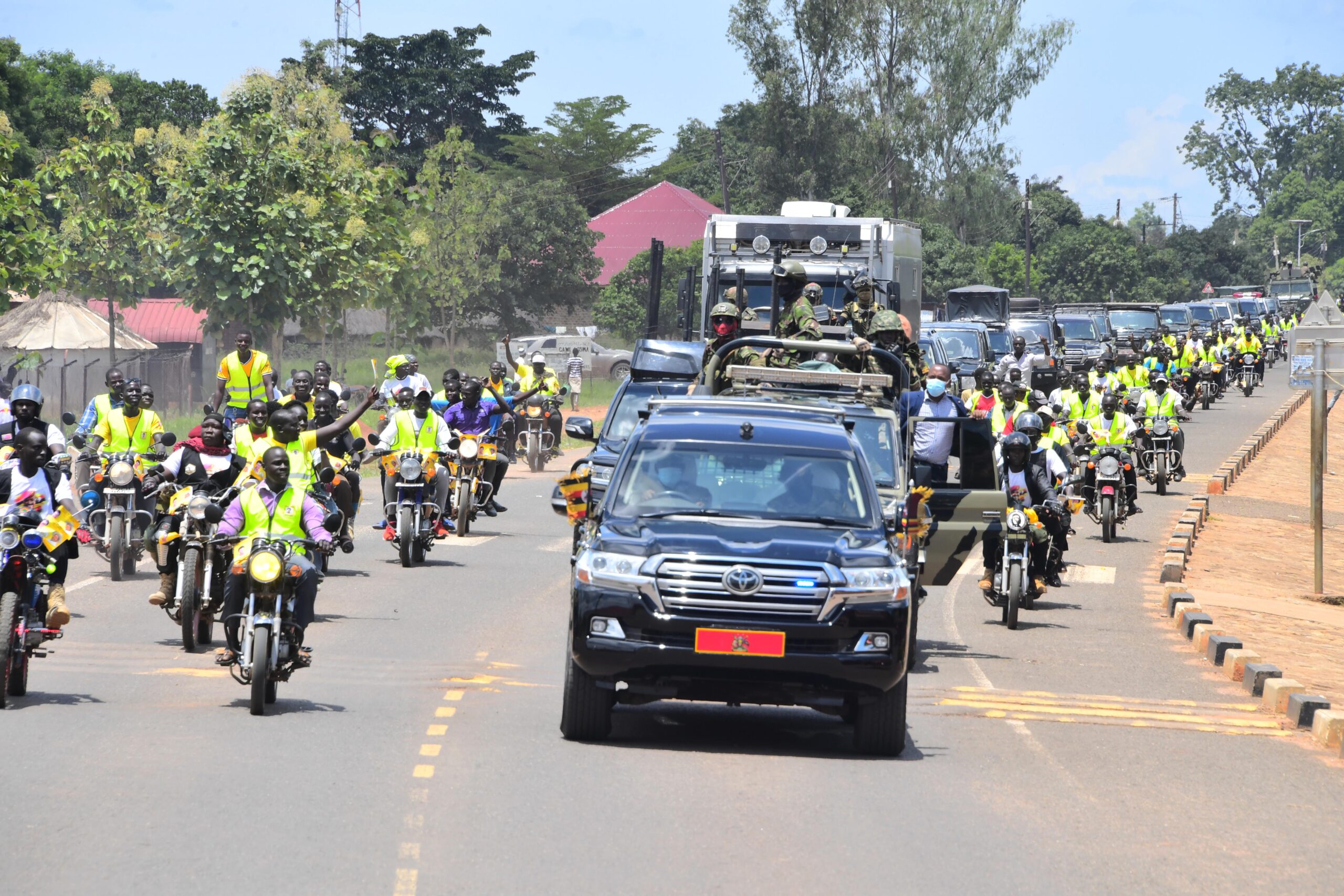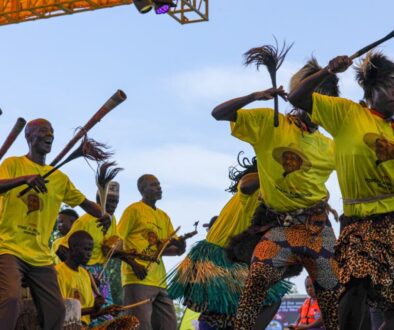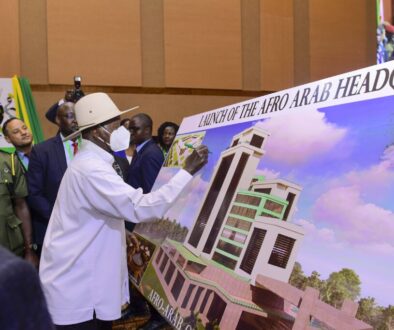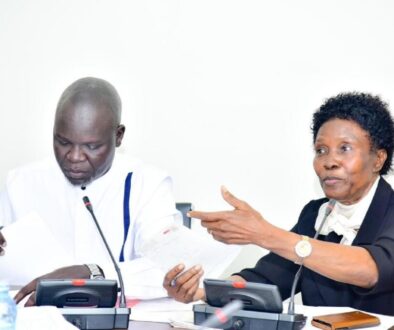Legislators concerned over hug state house budget

CAPTTION: Boda boda riders alongside President MMusevenni’s convoy in Kampala recently. (File photo).
By Our reporter
KAMPALA – Members of Parliament on the Budget Committee have expressed fears over the State House’s request for Shs83.033 billion to cover presidential donations and an additional Shs10 billion to purchase vehicles for President Museveni ahead of the 2026 general elections.
The request was presented by Alex Byarugaba, Chairperson of the Presidential Affairs Committee, while appearing before the Budget Committee to present the 2025/26 Budget Framework Paper on February 6th, 2025..
Byarugaba emphasized that unfulfilled presidential pledges are tarnishing President Museveni’s image as the fountain of honour.
“State House requires Shs83.03 billion to facilitate payment of pending donations, but only Shs53.033 billion is provided for in the Medium-Term Expenditure Framework (MTEF), leaving a funding gap of Shs30 billion,” Byarugaba said.
“This is very concerning. Many areas are waiting for the fulfilment of presidential pledges. It is important that this funding gap is addressed seriously.” Byarugaba also highlighted the challenges posed by an ageing fleet of State House vehicles, noting the increased costs of maintenance.
He defended the Shs10 billion request, citing the need to prepare for a busy election season and to monitor government programs like the Parish Development Model (PDM).
However, Kira Municipality MP Ibrahim Ssemujju criticized the allocation, questioning the President’s role in monitoring agricultural projects and using public funds to purchase campaign vehicles.
“The Chairperson justifies Shs10 billion for vehicles because it’s a busy election season and for monitoring PDM,” said Ssemujju.
“The President is not an extension worker who should be in sugarcane or banana plantations. This is absurd. We need a proper extension system, not the Head of State acting as one.” Ssemujju further argued, “It is unacceptable to use the national budget to fund vehicles for NRM campaigns. The President is a candidate like any other and should not burden taxpayers with his campaign needs.”
Byarugaba countered, stating that the mandate of the State House, as outlined in Articles 98 and 99 of the Constitution, includes supporting the Presidency in fulfilling its responsibilities.
“He remains the President whether during campaigns or otherwise and must be facilitated,” said Byarugaba.
“We should not expect the President to travel in dilapidated vehicles. He is the Fountain of Honour, and his dignity must be maintained.”
Kilak South MP Anthony Akol demanded transparency regarding the use of funds for presidential pledges. “We have been providing money for these pledges, yet year after year, they remain unfulfilled. What are the selection criteria? Can we get a list of pledges prioritized in this budget?” Akol asked.
In addition, the committee has backed a proposal to allocate Shss23 billion for Resident District Commissioners (RDCs). This includes Shs6.2Bn to close the funding gap for RDC facilitation and Shs2.8 billion for phased construction of RDC offices across the country.
“The Office of the President mobilizes the population towards socio-economic transformation. It requires Shs21 billion to facilitate RDCs, but only Shs14.8 billion is provided in the 2025/26 indicative budget, leaving a funding gap of Shs6.2 billion,” Byarugaba explained.
He further noted that the lack of office accommodation for RDCs is a persistent issue.
“The Office of the President requires Shs3.05 billion annually to construct at least five RDC offices, but only Shs700 million is allocated, which is insufficient. At this rate, it would take over 100 years to resolve the office accommodation issue,” he said.
Byarugaba recommended that Shs2.8 billion be provided annually to construct five offices per financial year, addressing the accommodation challenge in the medium term.
However, Ssemujju criticized the ever-expanding number of RDCs, which he said is straining the national budget.
“The President keeps appointing more RDCs. When he came to power, there were 39 districts; now there are hundreds of RDCs, over 600,” Ssemujju stated.
“We should reduce their number instead of continually allocating funds for new offices and facilitation.”


